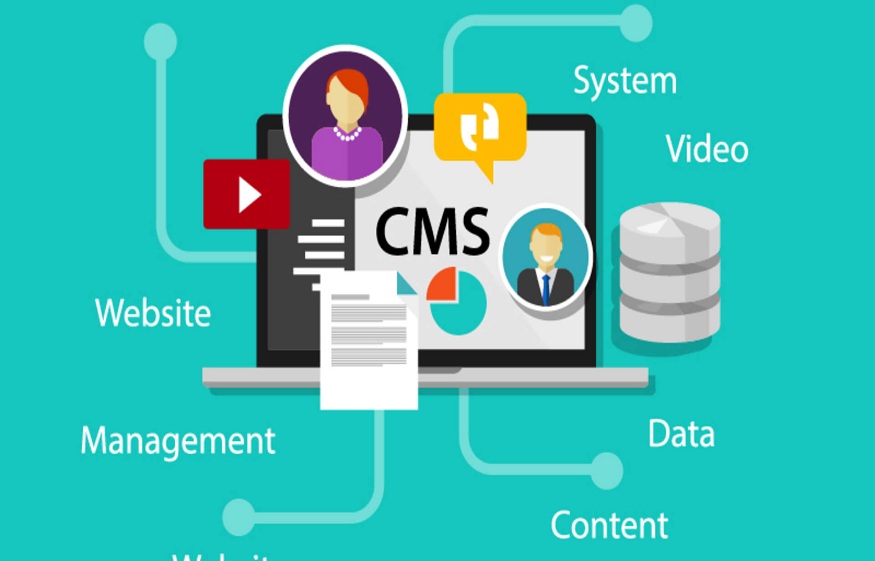In the fast-moving world of digital media, having the right Content Management System (CMS) is essential for media companies to create, manage, and distribute content efficiently. From large newsrooms to niche blogs, the CMS acts as the backbone of operations, allowing teams to collaborate effectively, scale content production, and deliver engaging experiences to their audiences. Choosing the best CMS requires a clear understanding of the features that truly matter for media organizations.
Why the Right CMS Matters for Media Companies
A CMS is more than just a publishing tool; it defines how content flows through your organization. For media companies, it affects speed, efficiency, editorial collaboration, and audience engagement. The wrong best CMS for media companies can slow down publishing, create bottlenecks, and limit the company’s ability to adapt to changing digital trends. Conversely, a well-chosen CMS empowers teams to deliver content quickly, maintain editorial consistency, and optimize user experiences across multiple platforms.
Core Features That Matter Most
When evaluating a CMS for media operations, it is essential to focus on features that address both editorial and operational needs:
1. Scalability
Media companies often face sudden surges in traffic, especially during breaking news or viral content events. A scalable CMS ensures your platform can handle high volumes of users and content without compromising performance.
2. Multichannel Publishing
Audiences consume content across websites, mobile apps, newsletters, and social media. A CMS with multichannel support enables teams to manage content once and distribute it efficiently across multiple platforms, ensuring consistent messaging and reach.
3. Workflow and Collaboration Tools
Large editorial teams require tools that streamline content creation, editing, and approval processes. Features like role-based access, content scheduling, and editorial calendars simplify collaboration, reduce errors, and maintain consistency.
4. SEO and Analytics Capabilities
Optimizing content for search engines is vital for driving organic traffic. A CMS with built-in SEO tools and analytics allows teams to monitor performance, understand audience behavior, and refine content strategies based on data insights.
5. Security and Compliance
Protecting content and user data is non-negotiable. Features such as user authentication, encryption, and regular updates help safeguard sensitive information and ensure compliance with industry regulations.
6. Customization and Flexibility
Media companies often have unique needs, from custom layouts to integration with third-party tools. A flexible CMS allows organizations to tailor the platform to their workflow, branding, and technical requirements.
Leading CMS Options for Media Companies
WordPress VIP
WordPress VIP is an enterprise-level CMS built on the widely-used WordPress platform. It offers extensive customization options, scalability, and a vast ecosystem of plugins and themes. Its intuitive interface makes it suitable for non-technical users as well.
Pros: Flexible, scalable, user-friendly
Best For: Large publishers managing high-traffic websites
Drupal
Drupal is an open-source CMS known for its security, flexibility, and robustness. Its modular architecture allows for extensive customization, making it ideal for complex content operations.
Pros: Highly customizable, strong security, active community support
Best For: Large-scale media organizations with technical resources
Contentful
Contentful is a headless CMS, which separates content management from content presentation. This approach enables efficient distribution across multiple platforms using APIs.
Pros: Omnichannel publishing, developer-friendly, flexible content modeling
Best For: Media companies focused on digital experiences across web and mobile
Ghost
Ghost is a lightweight, minimalist CMS that emphasizes speed and simplicity. It provides built-in SEO optimization and subscription management tools, making it ideal for blogs and small media outlets.
Pros: Simple interface, fast, SEO-friendly
Best For: Independent publishers and niche content creators
Stibo DX (Cue)
Stibo DX, also known as Cue, is a cloud-native CMS designed for newsrooms. It provides advanced tools for multimedia storytelling and multi-channel distribution, along with seamless integration with other tools.
Pros: Multimedia support, cloud-based flexibility, robust content management
Best For: Large newsrooms and media organizations focusing on storytelling
Key Considerations When Choosing a CMS
- Budget
Evaluate both upfront costs and ongoing expenses such as licensing, hosting, and maintenance. Enterprise solutions may require higher investment but offer scalability and advanced features. - Technical Expertise
Assess your team’s capabilities. Some CMS platforms require in-house developers, while others are more accessible to non-technical staff. - Integration Needs
Ensure the CMS can integrate with analytics tools, CRM systems, marketing automation platforms, and other essential tools. - Support and Community
Access to reliable support and a strong user community can make implementation and troubleshooting significantly easier. - Future Growth
Choose a CMS that can scale with your organization, accommodating more users, larger content volumes, and evolving publishing strategies.
Conclusion
Selecting the best CMS for media companies goes beyond choosing a platform; it is about enabling editorial efficiency, audience engagement, and organizational growth. Features such as scalability, multichannel publishing, workflow management, SEO capabilities, and security are critical for success. Platforms like WordPress VIP and Drupal offer robust solutions for large publishers, while Contentful and Stibo DX cater to organizations focused on multichannel digital experiences. Ghost remains an excellent choice for simpler, fast, and streamlined publishing.

